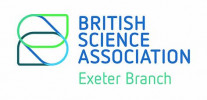© Pint of Science, 2024. All rights reserved.
Many researchers use mathematical and computational models to simulate biological systems such as the human body, plants, or pathogens. Artificial models can be used to predict how the biological system works and how it might respond. In this session, we will explain and demonstrate how maths can be used to model biological systems and give you an idea of why the models are useful. This special event is part of the Sidmouth Science festival and run by the British Science Association's Exeter Branch.
Mending muscle
Craig Willis
(PhD candidate, University of Exeter)
Age-related skeletal muscle loss (sarcopenia) is a leading cause of impaired physical function and health in older adults. Resistance exercise (RE) represents a promising strategy to counteract sarcopenia. However, older muscle does not grow as well as younger muscle in response to RE, and exactly why remains unclear. This talk will focus on using gene networks to predict molecules that may be key to exercise-induced muscle adaptation in young and older adults, which may hold promise as therapeutic targets for optimising exercise strategies to promote a healthy muscle mass across the lifespan.
Combatting killer fungi with computers
Dr Ryan Ames
(Research Fellow, University of Exeter)
Fungi, such as yeast, moulds and mushrooms, are everywhere. They live in soil, on plants and some even live on and inside us. A few species of fungi can cause serious human infections that can be lethal, killing more people around the world than malaria. To make things worse, there are no vaccines to protect against fungal infections and treating these infections can be difficult. In my talk, I’ll show how biological data can be used to generate computer models that simulate infectious fungi. I’ll also show how these models can inform experiments to learn new things about biology.
Curing Cancer with Astrophysics
Dr Charlie Jeynes
(Research Fellow, University of Exeter)
Freddy Wordingham
(PhD candidate, University of Exeter)
Each day, human skin is exposed to dangerous UV light from the Sun. As a result of this, non-melanoma skin cancer (NMSC) is the most common form of cancer worldwide. NMSC is currently treated with surgical excision, which is both expensive and can leave patients with cosmetic damage. However, Photodynamic Therapy (PDT) is an alternative treatment option which allows for cost effective treatment whilst achieving excellent cosmetic results. In this talk we will discuss our work on PDT using astrophysics inspired computer modelling combined with clinical data, to help improve treatment outcome.
Map data © OpenStreetMap contributors.

